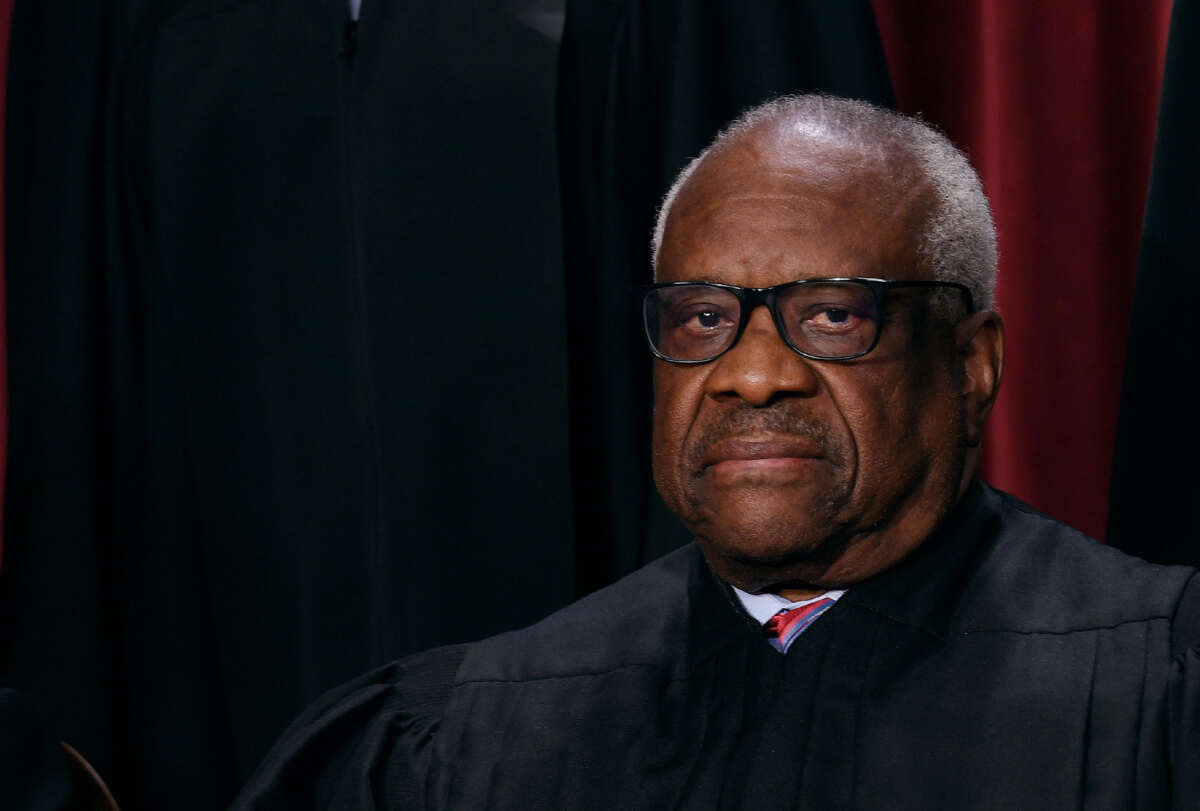One of the lawyers who successfully convinced the Supreme Court to strike down affirmative action in college admissions two weeks ago once made a payment over the mobile app Venmo to an aide to far right Justice Clarence Thomas, a new report finds.
The Guardian reported on Wednesday that in November and December of 2019, former Thomas aide Rajan Vasisht received several payments from lawyers who served as legal clerks to Thomas, including several lawyers who have argued cases before the Supreme Court recently. Vasisht was an aide to Thomas between July 2019 and July 2021.
One of the lawyers who paid Vasisht is Patrick Strawbridge, a partner at Consovoy McCarthy, who represented plaintiffs in the case against affirmative action.
Another is Elbert Lin, former West Virginia solicitor general, who in 2016 secured a stay against President Obama’s Clean Power Plan — which was a key tenet of last year’s West Virginia v. Environmental Protection Agency (EPA), in which justices including Thomas ruled to massively curb the EPA’s ability to regulate greenhouse gas emissions.
Yet another payment came from Brian Schmalzbach, a partner at McGuireWoods, which has argued several cases before the Supreme Court. Overall, the Guardian found seven Venmo payments, including four from lawyers at other top law firms; the payments are no longer publicly viewable on the platform.
It’s unclear what the payments were for, and the amounts were not disclosed. But they all seem to be connected to a Christmas party labeled as “Thomas Christmas Party,” “CT Christmas Party,” or “CT Xmas party.”
The report provides a small glimpse into the vast and secretive network of lawyers around the Supreme Court who hobnob with the justices behind closed doors, even as they play a huge role in the lives of Americans across the U.S.
“There is no excuse for it. Thomas could invite them to his Christmas party and he could attend Christmas parties, as long as they are not discussing any cases. His Christmas party should not be paid for by lawyers,” Richard Painter, chief White House ethics lawyer under George W. Bush, told The Guardian.
Painter and Kedric Payne, general counsel and senior ethics director for the Campaign Legal Center, told the publication that it’s also possible that the lawyers were paying for their own expenses at the party — but that the payments still raise red flags about the relationship between the lawyers and the justice.
“A federal government employee collecting money from lawyers for any reason … I don’t see how that works,” Painter said.
These new revelations come on the heels of a litany of discoveries about the ways in which Supreme Court justices, particularly Thomas and Samuel Alito, have reaped personal financial benefits from their positions through relationships with the wealthy elite — people who often have business before the Supreme Court.
Press freedom is under attack
As Trump cracks down on political speech, independent media is increasingly necessary.
Truthout produces reporting you won’t see in the mainstream: journalism from the frontlines of global conflict, interviews with grassroots movement leaders, high-quality legal analysis and more.
Our work is possible thanks to reader support. Help Truthout catalyze change and social justice — make a tax-deductible monthly or one-time donation today.
